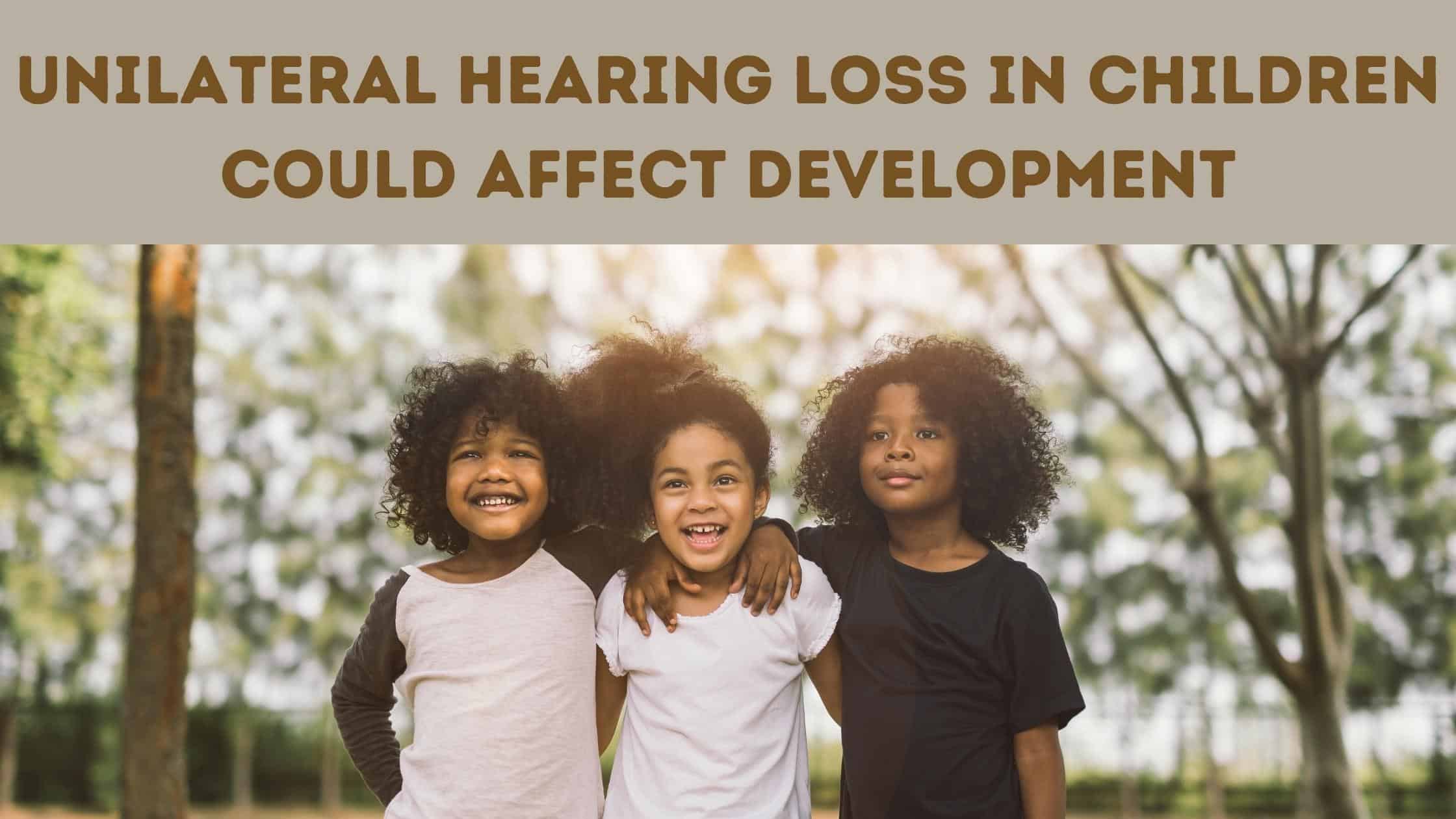
It’s a common misconception that hearing loss only affects seniors. The truth is that anyone can have hearing loss, including younger adults, teens, and even children.
Babies and young children living with untreated hearing loss can face a number of negative consequences, so it’s important that children have regular hearing screenings during checkups with their doctor. A recent study shows that young children with unilateral hearing loss, or hearing loss in only one ear, can also have delays in development.
What is Unilateral Hearing Loss?
Unilateral hearing loss (UHL), or single-sided hearing loss, is hearing loss in only one ear. If your child has hearing loss in one ear, they’ll have trouble hearing some sounds. They’ll also have difficulty knowing where a sound is coming from.
It may be challenging to see the signs of UHL in young children. For example, if they don’t respond when you call their name, it’s easy to assume they’re ignoring you on purpose or being rude. Some common signs of UHL in young children include:
- Difficulty localizing sounds. Your child may not look in the direction of a sound. This can be dangerous if your child is playing outside, and can’t tell which direction a honk or a yell is coming from.
- Problems hearing conversations when there’s a lot of background noise. Unilateral hearing loss makes it difficult to tell what sounds are important, and which sounds are distracting background noise.
- Having a hard time hearing if you call from another room. UHL makes all sounds seem much softer, and it will be harder to hear sounds coming from further away.
How Will Your Child React?
If your young child has unilateral hearing loss, they may act differently than usual. They can’t explain to you that they have hearing loss, and they may have a tantrum or get frustrated easily. These are just some ways your child could react that may let you know they have hearing loss:
- They’ll get upset when they can’t hear you.
- They may be extremely tired at the end of the day. Straining to hear all day is exhausting.
- They’ll answer questions wrong, or say things that are out of context.
- They keep asking you to turn up the volume on the TV.
- They seem to be rude, or act as though they’re not paying attention.
- They may get easily frustrated during conversations.
These can all be normal behaviors that many children do from time to time. However, if your child is reacting in this way on a daily basis, there may be an underlying reason. Get a hearing screening to find out if your little one has unilateral hearing loss.
Causes of UHL in Children
Approximately 1 in 1,0000 newborn babies have unilateral hearing loss, identified with a hearing screening in infancy. Over the first few years of life, children risk developing hearing loss due to illnesses or injuries. Among children starting school, around 3 in every 100 kids may have some unilateral hearing loss. Hearing loss in children can be caused by:
- Malformation of the ear canal, middle ear, or inner ear.
- Ear infections.
- Bacterial meningitis.
- Measles or mumps.
- Chickenpox.
- A head or ear injury.
- Exposure to dangerously loud noise.
If you think your child developed hearing loss for any reason, visit your audiologist as soon as possible.
Hearing loss in Children Affects Development
A recent study looked at how children with unilateral hearing loss performed in school. It also examined how they developed language and social skills. The study found that kids with UHL often have delays in development, including lower language and verbal scores than children with normal hearing. Hearing loss can lead to delays in speech, language, and cognitive development, and even lead to behavioral problems.
If you have young children, and you notice any changes in learning or development, get a hearing test as soon as possible. This is something you need to treat right away. Children who treat unilateral hearing loss with quality hearing aids have better language and learning outcomes. They’ll be able to hear all the sounds around them, just like kids with normal hearing.
Hearing health is important for people of all ages. If you have experienced changes in your hearing, contact us today to schedule an appointment for a hearing test!
